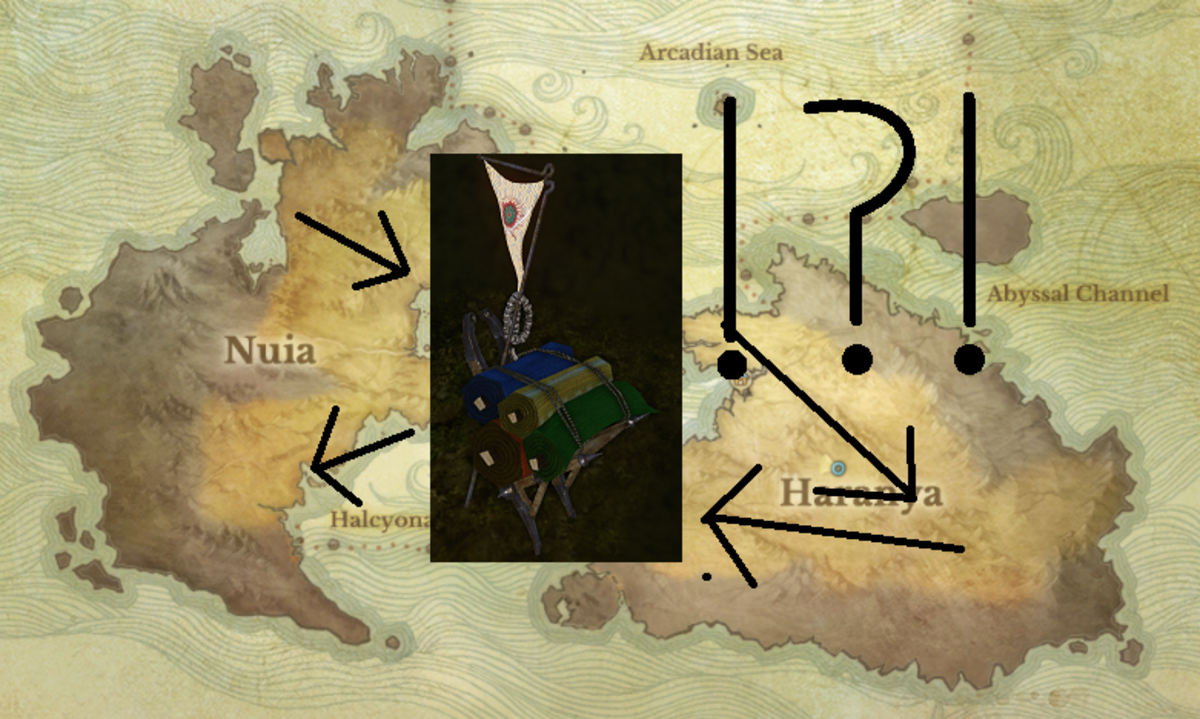MMORPG Games: What I Learned
MMORPG Design and Genre
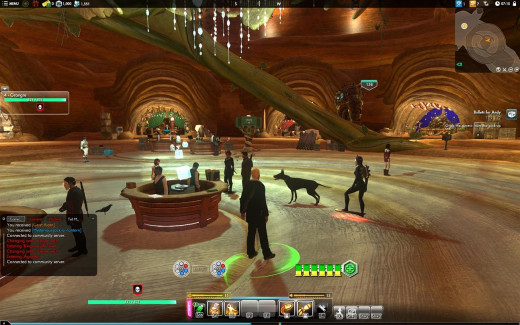
In 2016, it was twenty years since consumer-grade, visual MMORPGs, massively multiplayer online games started with Habitat’s beta version — by Lucasfilm Games in 1985. Things like Compuserve's, QuantumLink's and AOL’s multiplayer games followed.
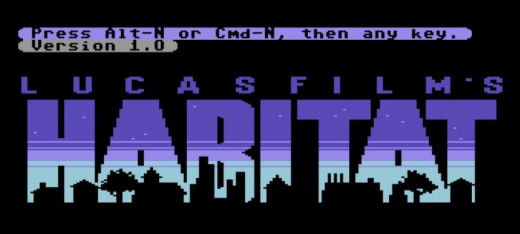
Todays MMOs are Massively Evolved
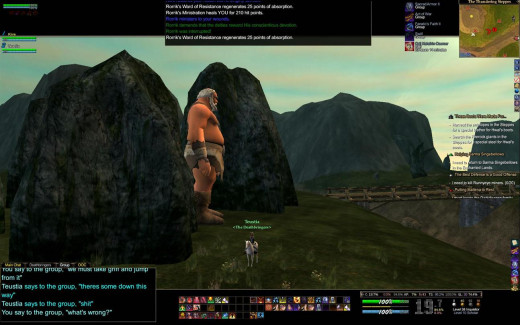
After two-plus decades in the market, massively multiplayer online games, known by the acronyms MMORPGs, MMOWS, MMOFPS, and MOBAs have definitively taken over.
Their levels of adoption by the masses were, and are, big and still increasing.
It’s no wonder that they are still increasing since most popular multiplayer games are adopting the Free-2-Play (F2P) model and generating revenue by other, non-subscription-centered means.
They form a common part of contemporary popular culture to the point of being named in contemporary media characters dialogue lines, or in any other way used in TV, movies and other media.
There are also derivative works, like novels, movies, and comics, with stories that happen in the worlds of online games.
I see MMORPGs and online games in general as having, at a minimum, two divergent genres. One as the genre of the back-story and world and the other is the genre of the play mechanics.
Of these two genres, the main genre is the genre of play mechanics.
What is implied is that if a gamer loves, for instance, real-time strategy, any multiplayer RTS game will appeal to her, regardless of the genre of the back-story.
Personally, this is not my case, and I chose and choose MMOs to play and study based on its narrative genre. I like almost all kinds of play mechanics, and maybe it’s the reason I tend to choose a game based on the back-story genre.
This feature is going to be about how someone like me sees the industry after more than seven years playing MMORPGs specifically.
I played online for the first time in the ‘90s but those where just FPS with multiplayer capability.
MMOs for all Tastes and Hardware
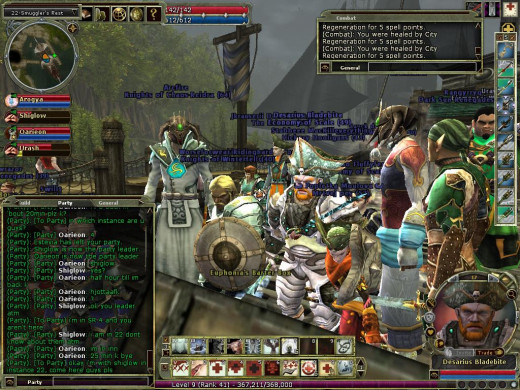
Today, online games are played with computers, consoles, tablets, and smart-phones.
From the browser-based and 2D MMOs played at the cybercafe with fifteen years old PCs to bleeding-edge game setups valued in the thousands of dollars able to run crowded and full, meta-verse simulators — like central and newbie areas in Second Life, or in the Open Grid — with all the graphical features of the client maxed out.
Their world and back-story genres vary, some are fantasy, or science fiction from sagas known from other media, Star Wars, Star Trek, JRR Tolkien, Conan, DC Comics, Marvel, Japanese manga, you name it.
Others have narratives completely created in-house by the development companies. There are even MMO versions of old, originally single-player video game series.
There are the tournament and death-match MMOFPS, free-form MMOs, and life simulators, which are also called MMOWs.
There are cyber-sport games, most of them MOBAs and MMOFPSs, and there are even some MMORPGs with economies pegged to real-world currencies.
Those that have their currency pegged to real currencies usually have cash-out features.
This made the process of monetized video gaming more streamlined, eliminating the middle step of selling and buying game items through eBay or similar portals to make cash from video games.
This kind of environment gave birth to the concept of [video game cowboy], i.e., an MMO player who makes a monthly living playing them.
To give the example I know, Entropia Universe. Early adopters of that game, after around one decade playing the game as if it was a job, and not giving up, have achieved a periodic, consistent monthly income from it.
I see cyber-athletes that play MOBAs and competitive MMOFPS as a kind of speculative video game cowboy, in the sense that they live to play — train — speculating they will win a tournament and become rich in that way.
I made a few queries in mmorpg.com to see the proportion of choice available between the three genres that I personally enjoy the most — horror, science fiction, and fantasy — but I already knew the results were going to be heavily tilted towards fantasy.
What I didn’t expect to find, though, was such wide variance between fantasy and the other two.
What’s With All That Magic?
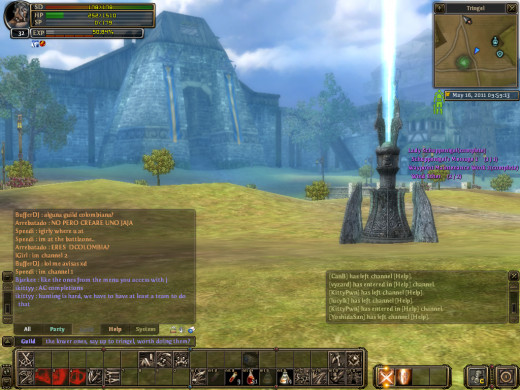
Did the fantasy genre take over the MMORPG market almost completely?
The answer to that question is a resounding yes. It’s a fact that most online games, especially if they are RPG instead of, say, FPS, there are high chances of them being of the fantasy genre.
I guess the processes of market research by which the game developing companies arrive at their decisions of what to develop and publish fall into the category of trade secrets. But if that kind of information could be shared, I’d like to see it.
Specifically, I’d like to know the process by which they assume that it’s going to be beneficial for them, and their customer bases to settle for a certain genre of back-story, look and feel, and not for another.
It is lamentable that, for many developers, players might not be much else than simply a pip in their target demographic.
Because of that, I suspect that there’s something wrong with the approach of game companies towards estimating what online game players want to play.
It doesn’t ring true to me that the current bias towards fantasy is really what almost every player of MMOs want to play.
Maybe the reason has a hidden psychological meaning. It was found by a study that children and adults of middle class or higher backgrounds like fantasy, historical dramas and other kinds of fiction related to the past, ancestry, and heritage.
In contrast, middle-low class audiences like genres like horror, and lower-middle-class audiences science fiction, and other genres that deal with the future.
Maybe they think that the genre choice of high fantasy, sword and sorcery, urban fantasy and the like would appeal to a more educated or cultured user base.
A user base in possession of more disposable income to spend in subscriptions, expansions, and goodies from the item malls.
They seem to gloat over the thought that more players would subscribe to the game, giving the company a higher chance at breaking even, and at making a profit from the game.
Maybe this is the reason, a fear to innovate, an aversion to the possibility of ending up with a clone of something that was done before, fall flat with the players, and fail on the business side.
To me, that’s exactly what most companies are actually doing.
Taking a look at the retail multiplayer charts on Githyp for 2017, we found that not a single retail game with multiplayer capability in the top-ten of sales is of the fantasy genre in back-story. That just leaves us with two very crude realizations when thinking of online playing as a whole:
Most online players prefer RPGs
RPGs must be, almost invariably, in the fantasy genre
Maybe this careless picking of genres is a reflection of an underlying, more serious fact that few players stop to think in detail: companies make video games to profit from them and, given certain circumstances, they couldn’t care less for the player's tastes, enthusiasms, and attachments.
An example would be a company with several MMOs on the market that closes one of them that’s doing just okay or well, to allocate the resources to another that’s doing great. Like NCsoft did with City of Heroes.
I personally thought that CoH/CoV was great in every sense and superior to all other games I played seriously as a design student.
I suffered its closure as it suffered the end of Shin Megami Tensei: Imagine. They just ceased to exist from a day to the next.
We read or hear repeatedly about disgruntled user-bases. About how the developers did this or that. Like a degrading of the playing character stats known as “nerfing the game”, or the conversion to free-to-play of a game that was originally buy-to-play or subscription-only.
Only rarely we hear about the developers and publishers doing something worthy of being praised by the community. Something like the reviving of City of Heroes/Villians by Homecoming in mid-2019 being the exception. Or the project that revived Lucasfilm Habitat more than three decades after its demise.
MMORPG creators may espouse the ideology of making one’s life better by enabling us to live, maybe not in nature, but with nature. In fact, it’s just a technological, and cut from nature, simulation.
More possible reasons for the genre bias:
- Because of lower computing resources required, creating low-tech worlds may support a wider range of players, players with mid- and low-end systems, which translates to more potential players.
- Developing a world based on magic, and the past may imply a lesser effort when compared to creating a contemporary, technological world.
- Suspension of disbelief might be easier to maintain with low-tech, fantastic worlds.
- Creating a world and mythology from scratch, and not having to deal with real-world constraints may give a wider breadth of creative freedom, and an easier research and development process.
Content Surplus and Activity Hell:
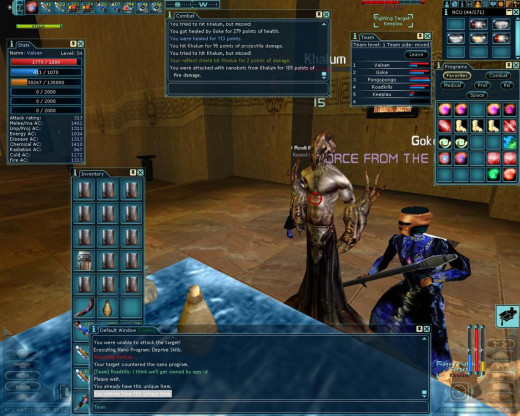
Personally, I think that the way MMORPGs, in particular, are designed is something good for persons up to around twenty-five-year-old. Even though the standard demographic is up to thirty-five years old, I don’t believe that’s the case with many of the games released today.
They’re great for youngsters that have time to maintain a hard-core approach to the game, due to still having a low level of responsibility to attend to.
The constant novelty that MMOs push on their players' experience, along the organizational and managerial skills they force the players to learn, are things of value. This without taking on account the social, tactical and strategical ones.
Player Performance

Player efficiency in MMORPGs is measured by how fast you achieve character cap and can consider yourself a veteran ready for the mid- and/or end-game content.
Even if end-game is just a way of saying character cap because the business plans of the companies are about releasing content indefinitely and increasing the character level cap to capture the community, keep them hooked, and prevent the game’s death.
When we have MMORPGs that are envisioned as hard-core in every sense by their developers, it’s obvious they are designed to cater to people with too much free time on their hands.
I mean a game that, if played casually, takes you two years to reach character level cap, and you still are at mid-game when you reach it. Meaning that only at that point is where the real fun starts.
Yet, all the while you couldn’t bond with anyone in the game because it’s played way faster than that, and casual players fall way behind of normal, i.e., hardcore, players.
In a game like that, the standard would be reaching level cap in one to three months, at the cost of the personal experience of the game’s world and back-story being totally broken by playing in that manner.
Now, It’s not unheard for experienced players, who re-roll, meaning, they create a new character after completing all the content and start anew.
Players who completed the game more than once, and re-rolled characters, are liable to reach level cap in a matter of weeks or days.
Re-rollers steamroll content in a couple of days, while new and casual players take months or years to complete the same dose of content.
Moreover, if new and casual players aren’t efficient, their approach requires a lot of boring grind to meet a semblance of power-leveling. Even a lot of hand-holding from more experienced and powerful players.
If we add the player vs player and crafting content to all the “core” quest content, we hit a glass ceiling. We realize that the way many MMORPGs are designed doesn’t allow a player to do everything that there is to do.
Instead, players must become a part of a guild, working as a group towards a coordinated greater good. Common tasks in a guild are everyone helping everyone else, and giving away game time as help or in-game stuff to fellow guilders.
Conclusion

These games give more valuable things besides just entertainment and aesthetic pleasure.
MMORPG communities have dynamics that, as I see it, give social skills and virtues to those that lack them, and hone the ones of those that already have them.
Among the skills and virtues I experienced from others and developed myself playing MMORPGs I can count:
- Modesty: when you are a newbie and have to make do with sticks and stones and don’t demand anything from others. Or when you search the web instead of asking your more experienced guild-mates to clear your doubts, to keep them from distractions.
- Patience: when you know that you could speed-run the game, but instead you play it as it was meant to, imbibing the back-story, and not skipping the text content, even if it is a narrative bordering on pulp.
- Organization: the creep of content, items, playmates, and activities that can’t be dealt with simultaneously forcing you to either organize or be less efficient.
- Tolerance: when maladjusted players sharing the consensual reality act in annoying ways, and you let them be without reacting to them, censuring them or reporting them.
- Consideration: when you consider how easier and faster everything becomes when you play as a team acting as a single unit with each member being great at their task.
- Magnanimity: when you want to give something away for free and simply announce it in the global chat for anyone to claim it.
- Selflessness: when you are high level, and a new player asks for help, and you help him or her, spending time with content that doesn’t benefit you. When you have a costly or rare item or an item that took a lot of time and resources to make and you give it away to someone who needs it, for free.
- Economy: if you trade items in the game, you forcefully develop basic business skills.
- Communication: when you give up jargon and mannerisms and start writing the best you can in your chat dialogues.
MMOs enabled me to know people with these virtues and skills that were kind to me and made me adopt their ways.
Yet, the most patent redeeming quality of online games that must be acknowledged is the decision of many MMOs to become free-to-play or buy-once, relying just on optional subscriptions, expansions, perks, and item malls as means to generate revenue.
To check out all the value given away for free in the online game world, the only thing one requires is time and patience.
The only thing one may regret after trying online games to one’s heart’s content, is the loss of time, if at all.
That’s the beauty of being able to try without having to buy, like most of the popular online games become.
We can dig beyond the sampling phase and level half the character levels, or even made our way to cap or even end-game without having to invest any of our hard-earned money.
Making premium perks, items, and content able to be bought individually grants, those without the money — or the commitment — needed to subscribe, the possibility of spending in determined things only.
This allows the players to demonstrate appreciation for the game while paying for something that will make the playing experience better than a taker-only approach to it.





